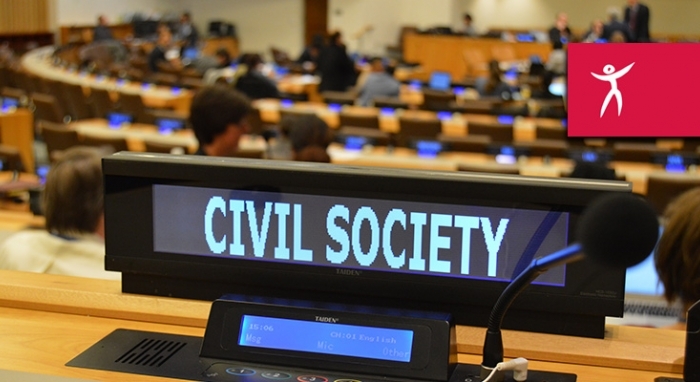On the day the NGO Committee became more accessible to NGOs through webcasting of its sessions, the NGO Committee voted by 13-4 to halt a vote on whether an NGO representative should be able to address the Committee.
‘A no-action motion is a procedure that denies freedom of expression by closing down debate. A no action motion halting a vote on allowing an NGO to speak to the NGO Committee is perverse,’ said ISHR’s Eleanor Openshaw.
Several hours of debate preceded this decision, during which the civil society representative – from Amnesty International – requesting the floor was stopped from speaking twice. Several times the US asked those opposing to say why they were so fearful of a civil society statement. Russia questioned the independence of some NGOs seeking to cooperate and cooperating with the UN, calling their engagement ‘trickery’.
A precedent for an NGO general statement to the NGO Committee was set last June when ISHR took the floor to speak to the concerns expressed by 230 NGOs in regard to NGO Committee practice. An attempt by Brazilian NGO Conectas Human Rights to make a statement at the last session – in January 2017 – was rejected at the initiative of China, India and Russia.
The NGO statement Amnesty International sought to deliver, welcomes the introduction of webcasting and stresses the importance of continuing to focus on improving methods of work.
‘The NGO Committee is precisely the place where NGOs should be able to make a statement about Committee practice and the relationship between the UN and NGOs,’ said Eleanor Openshaw.
‘This session, several Committee members have indicated that they are supportive of hearing from NGOs but that a clear process for enabling this is lacking. We call on the Committee of NGOs to define a process for an NGO general statement to be delivered at the Committee.’
The NGO Committee is responsible for ‘regular monitoring of the evolving relationship between NGOs and the UN’. Hearing from NGOs forms part of this. ECOSOC resolution 1996/31 notes that the Committee should be meeting with ECOSOC accredited organisations before each of its sessions and at other times at necessary. These meetings have not been happening.
Reflecting on the debate within the NGO Committee and on restrictions on civil society participation more broadly, Eleanor Openshaw noted, ‘It helps no-one that the question of civil society participation at the UN has become so politicised and polarised. Encouraging States to acknowledge the value of civil society participation is an urgent question and needs to be addressed by the highest levels in the UN.’




